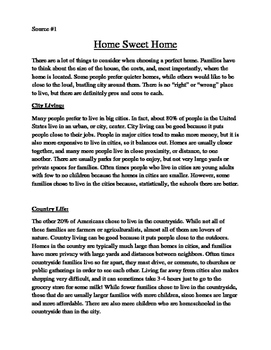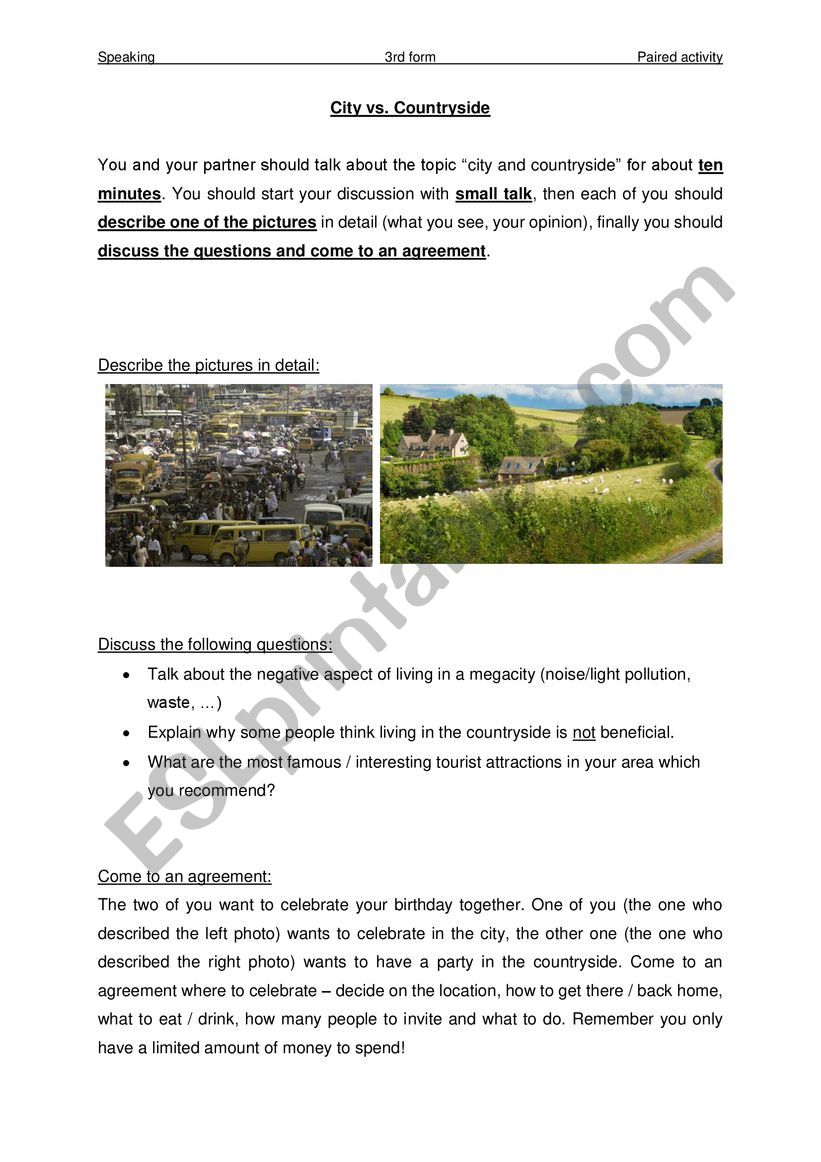Living in the city vs living in the countryside is a topic that has been debated for centuries. Both living situations have their own unique set of advantages and disadvantages. In this essay, we will explore the pros and cons of living in the city versus living in the countryside.
One of the main advantages of living in the city is the convenience factor. Cities are typically more densely populated, which means that there is a greater concentration of amenities and services. For example, you can find a wide variety of restaurants, shops, and entertainment options within close proximity of your home. Additionally, cities often have better public transportation systems, making it easier to get around without a car.
Another benefit of living in the city is the opportunity for a diverse and vibrant cultural experience. Cities tend to have a mix of people from different backgrounds and cultures, which can lead to a rich and diverse social scene. In the countryside, on the other hand, the population tends to be more homogenous and the cultural offerings may be more limited.
However, living in the city can also have its drawbacks. One of the main disadvantages is the cost of living. City real estate prices are often much higher than in the countryside, making it more difficult for people to afford to live there. Additionally, cities tend to be more crowded and congested, which can be stressful and lead to a lower quality of life. Pollution is also often a problem in cities, as the concentration of people and vehicles leads to higher levels of air and noise pollution.
On the other hand, living in the countryside has its own set of benefits. For one, the cost of living is often much lower in rural areas, making it a more affordable option for those on a budget. Additionally, the countryside tends to be less crowded and more peaceful, which can be a major advantage for those who value a more relaxed and quiet lifestyle.
Another benefit of living in the countryside is the opportunity to be closer to nature. Rural areas are often surrounded by forests, fields, and other natural landscapes, making it easier to enjoy outdoor activities and appreciate the beauty of nature. In contrast, cities often have limited green space and may not offer as many opportunities to connect with the natural world.
However, living in the countryside also has its downsides. One major disadvantage is the lack of amenities and services that are commonly found in cities. For example, it may be harder to find good restaurants, shops, and entertainment options in rural areas. Additionally, public transportation is often limited or non-existent in the countryside, which can make it difficult for people to get around without a car.
In conclusion, living in the city vs living in the countryside is a personal choice that depends on an individual's priorities and needs. Cities offer convenience and a diverse cultural experience, but can be expensive and crowded. The countryside is more peaceful and affordable, but may have fewer amenities and services. Ultimately, the decision to live in the city or the countryside should be based on what is most important to the individual.







